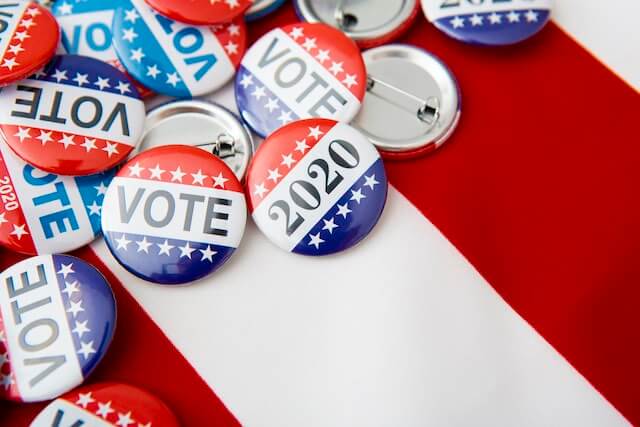Who do federal employees plan to support in the upcoming presidential election? If the results of our latest survey are any indication, it appears that President Trump will have a slight edge over Joe Biden.
Do You Trust Polls?
Polling prior to an upcoming election is a popular topic. Many of us look at the results of a poll and assume we are seeing a pattern for the future… after the upcoming election. That is often the case but polls are not always accurate even though they are touted as being “scientific” endeavors.
Some polls survey registered voters. Other polls survey likely voters. This is a big distinction as many registered voters do not vote unless their enthusiasm is triggered in some way.
Many polls oversample Democrats. For example, a Quinnipiac poll from July showed Joe Biden with a 15-point lead over Donald Trump. This poll surveyed registered voters and oversampled Democrats by 10 points. As Democrats are much more likely to vote for a Democrat, much of the 15-point lead may have been due to the oversampling.
This does not mean that this poll was necessarily wrong at the time it was taken. It does mean that those reading the poll results should take these factors into account.
Of course, most polls do not reveal in the summary article who was surveyed and the oversampling methods that were used. That information is often in the footnotes or in the full report that may or may not be readily available.
Political issues can reveal strong emotions and perhaps bring out the worst aspects of some personalities. In the last FedSmith poll and in the announcement of the most recent survey on the upcoming presidential election, several readers asked about FedSmith readers preferences during the last presidential election with Hillary Clinton and Donald Trump. One reader sent a note that essentially read: Your survey was wrong in 2016 so why do you bother taking a survey in this election?
2016 Polls
In 2016, most pollsters were predicting a Hillary Clinton win over Donald Trump. Contrary to most polls at the time, FedSmith readers said they favored Trump over Clinton by a significant margin. A survey of readers is not a scientific poll. Readers tell us if they are independent voters or if they have a party affiliation. We do not know if they are a registered voter, a likely voter or if they have never voted. We also do not know if they are telling the truth when responding to the questions.
A poll does not measure the enthusiasm of potential voters. Does a large rally by Donald Trump with a large, enthusiastic audience indicate more people will vote for Trump because a “rally” with Joe Biden only has several dozen people in attendance? Does a boat rally in Florida with thousands of boats in the water in North Carolina or Florida waving Trump signs indicate much stronger support for Donald Trump than revealed by the polls?
Does the intense dislike or hatred of Donald Trump by Democrats presage a large victory for Joe Biden as Democrats will be more likely to vote this year?
No one really knows. According to the Gallup polling organization, in 2000 and 2016, the American public predicted Al Gore and Hillary Clinton would win their respective elections. These candidates did win the popular vote. But, as we know, George W. Bush and Donald Trump won the most electoral votes and became president.
Elections are sometimes decided by last-minute events. Since the first FedSmith reader voted in this survey, President Trump has contracted COVID-19 and has recovered and started campaigning again. There has been a debate between vice-presidential candidates and a debate between the two presidential candidates. No doubt, several more events will occur prior to the election day that could sway some voters.
Trump Over Biden: FedSmith’s Latest Survey Results
With over 2,200 responses, the majority of respondents (51%) to our latest survey heading into the election said they plan to vote for President Trump over former vice president Joe Biden (46%).
In response to who they think will win the election, 52% said Trump and 48% said Biden.
The majority of respondents to our survey are current federal employees (67%), and 29% were retired federal employees. Respondents identified themselves as follows:
- 35% independent voters
- 33% Republican
- 24% Democrat
- 5% Libertarian
- 4% other party
Respondents indicated that they have a strong interest in this year’s election. 93% said they were either “extremely” or “very” interested. As to their motivations, respondents said that they are primarily motivated by fear of the other candidate winning rather than enthusiasm for their preferred candidate. 68% said fear of the other candidate winning was the bigger motivation in voting in this year’s election.
The COVID-19 pandemic has raised questions about how people are likely to vote this year. We asked in the survey how respondents planned to cast their votes. Most (58%) said they plan to vote in person and 41% plan to vote by mail. Less than 1% said they do not intend to vote. In other words, potential health concerns about voting in person do not appear to be a huge worry for the federal employees who took our survey.
Our thanks to readers who took the time to share their feedback in our recent survey!



